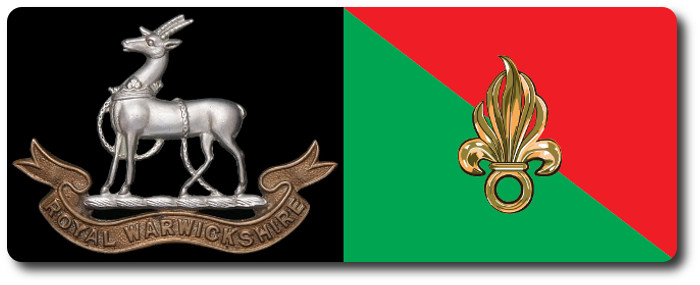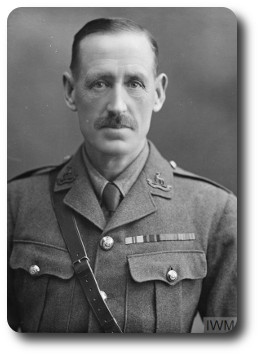Topic: Officers

England Now Ringing With the Story of the The Colonel Who "Came Back"
Meridian Morning Record, Meridian, Connecticut, 20 September 1916
(Correspondence Associated Press.)
 London, Sept. 8.—All England is ringing with the story of Lieutenant Colonel John Ford Elkington—one of the strangest romances of this strange world war.
London, Sept. 8.—All England is ringing with the story of Lieutenant Colonel John Ford Elkington—one of the strangest romances of this strange world war.
It is the ever-appealing, human story of a man who "came back."
Dismissed by Court Martial
Dismissed by court martial from the army he had served for nearly thirty years, just as his regiment was going into action in France in the closing months of 1914, this English officer, disgraced at a time of life when the chances of fate weigh heavily against a man fighting for suddenly lost honor, found refuge in that queerest of all military organizations, the Foreign Legion of France.
Lost in the mazes of the western battlefields—a mere legionnaire in the ranks, Colonel Elkington, late of the Royal Warwickshires, was all but forgotten. None of his old friends, his old fellow officers, none of the men who had seen him win the Queen's medal for valor in South Africa; none of these knew that Elkington was out there "somewhere in France," relentlessly winning his way back.
Receives Coveted Honors
But now Elkington is back in England. Pinned on his breast are two of the coveted honors of France—the military medal and the military cross; but most valued possession of all is a bit of paper which wipes out all the errors of the past—a proclamation from the official London Gazette announcing that the King has "graciously approved the reinstatement of John Ford Elkington in the rank of lieutenant-colonel with his previous seniority in consequence of his gallant conduct while serving in the ranks of the Foreign Legion of the French army."
Receives Reappointment
Not only has Colonel Elkington been restored to the army, but he has been reappointed in his old regiment, the Royal Warwickshires, in which his father served before him.
In the same London Gazette, at the end of October 14, had appeared the crushing announcement that Elkington has been cashiered by sentence of general court martial. What his error was did not appear at the time, and has not been alluded to in his returned hour of honor. It was a court martial at the front at a time when the first rush of war was engulfing Europe and little time could be wasted upon an incident of this sort. The charge, it is now stated, did not reflect in any way upon the officer's personal courage. But with fallen fortunes he passed quietly out of the army and enlisted in the legion—that corps where thousands of brave but broken men have found a shelter and now and then an opportunity to make themselves whole again.
Fighting Days Over
Colonel Elkington did not pass unscathed through fire. His fighting days are ended. His knees are shattered and he walks heavily upon his sticks.
"They are just 'fragments from France'," he said of those wounded knees.
Colonel Elkington made no attempt to cloak his name or his former army service when he entered the ranks of the legion.
"Why shouldn't I be a private?" he said. It is an honor for any man to serve in the ranks of that famous corps. Like many of the other boys, I had a debt to wipe off. Now it is paid."

Notes on the career of Lieut.-Col John Ford Elkington from the London Gazette:
- The Royal Warwickshire Regiment, Honorary Queen's Cadet John Ford Elkington, from the Royal Military College, to be Lieutenant, vice A. P. A. Elphinstone, seconded. Dated 30th January, 1886. (London Gazette, 29 January 1886)
- The Royal Warwickshire Regiment, Lieutenant John Ford Elkington to be Captain, in succession to Major W. A. Campbell, Adjutant of Volunteers. Dated 25th January, 1893. (London Gazette, 7 February 1893)
- War Office, 28th October 1916. His Majesty the KING has been graciously pleased to appoint Lieutenant-Colonel John Ford Elkington, Royal Warwickshire Regiment, to be a Companion of the Distinguished Service Order. (London Gazette, 31 October 1916)
- R. War. R.–Lt.-Col. J. F. Elkington, D.S.O., on completion of his period of service in command, is placed on the h.p. list. 24th Feb. 1918. (London Gazette, 1 March 1918)
- Warwick. R.– Lt.-Col. J. F. Elkington, D.S.O., having attained the age limit of liability to recall, ceases to) belong to the Res. of Off., 3rd Feb. 1921. (London Gazette, 22 February 1921)

John Ford Elkington online:
- Lieutenant-Colonel Elkington and the retreat from Mons, 1916
- The Great War Forum – Court Martial Records of Lieutenant Colonel Elkington, 1st Warwicks
- Imperial War Museum Photos – Lieutenant Colonel John Ford Elkington

